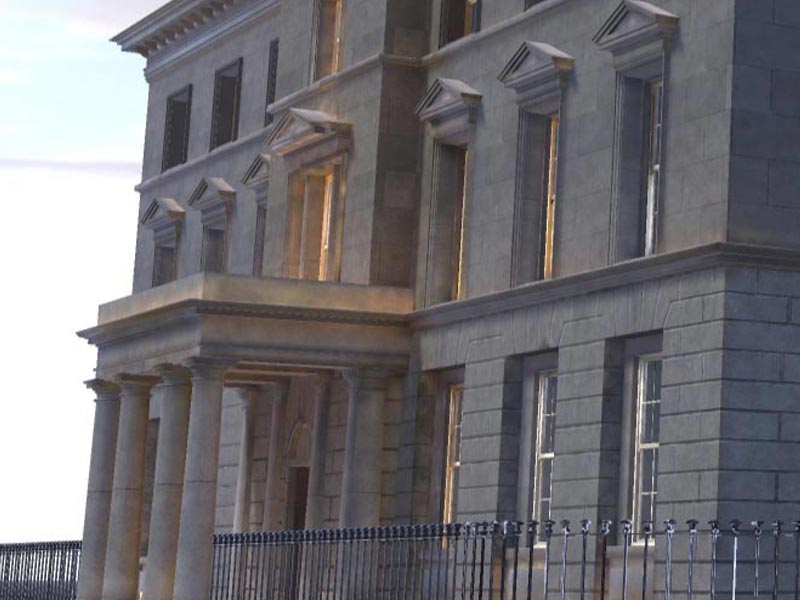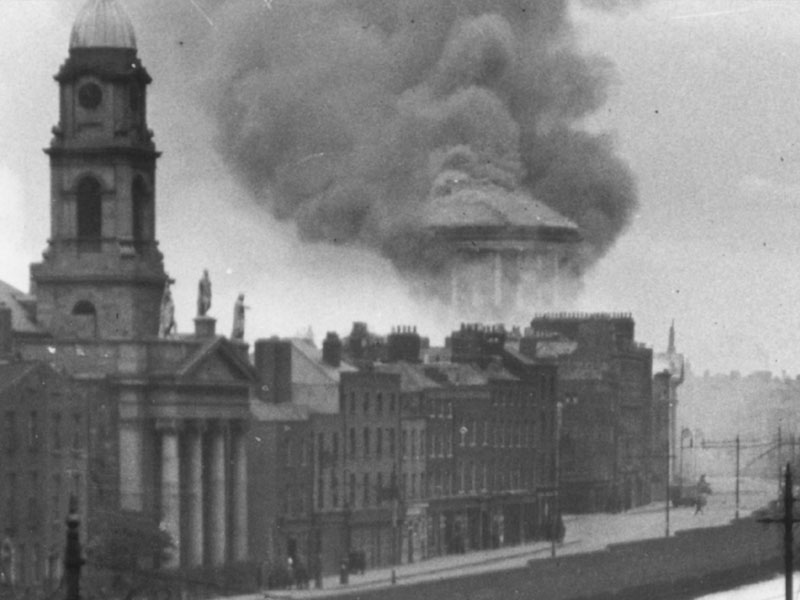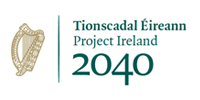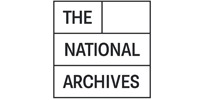
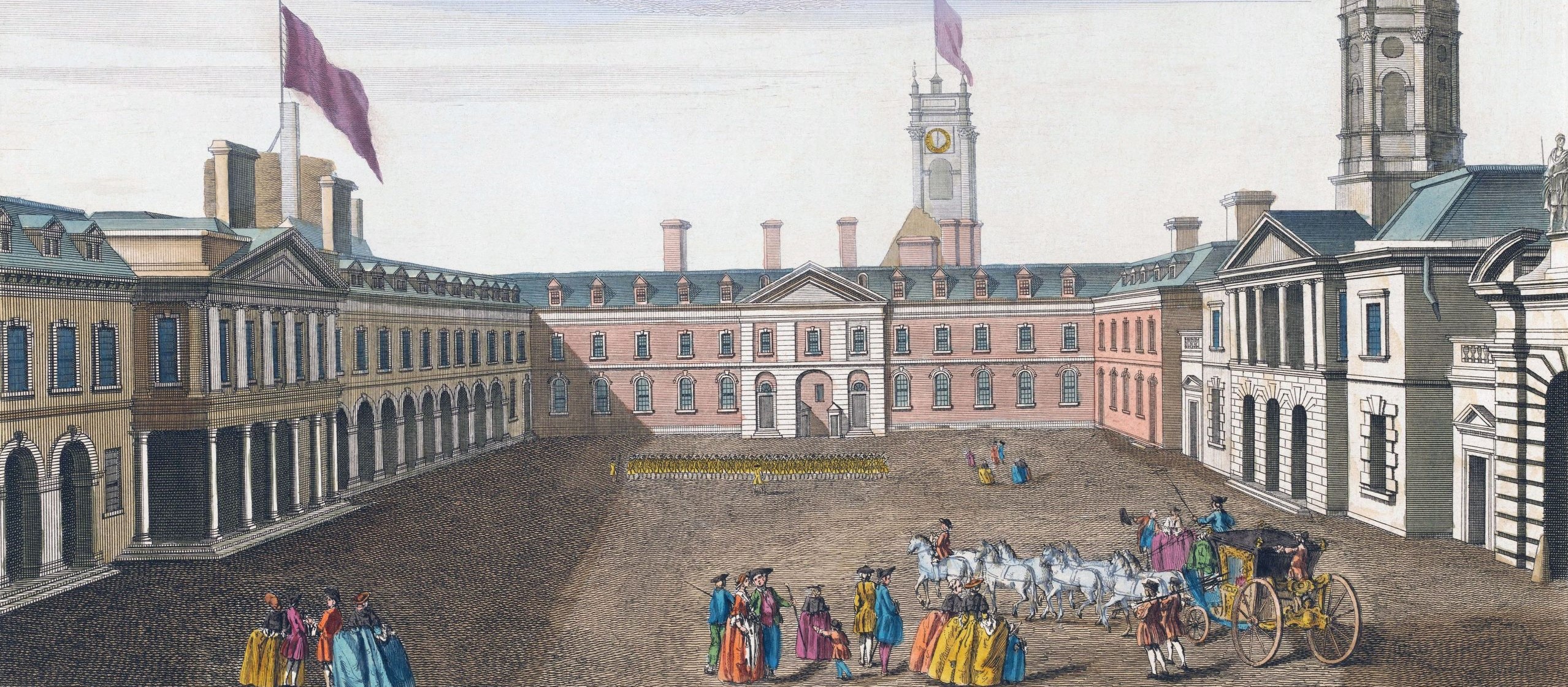
The Chief Secretary’s Papers, 1770-1830
Manuscript Gallery
The archives of the Chief Secretary’s Office, once the central node of the British government in Ireland, were irreparably damaged in the destruction of the Public Record Office in 1922. This gallery invites you to explore a small selection of surviving manuscripts that serve as substitutes or unofficial copies of lost originals. Drawn from scattered collections, these documents offer rare glimpses into the machinery of the Dublin Castle administration.
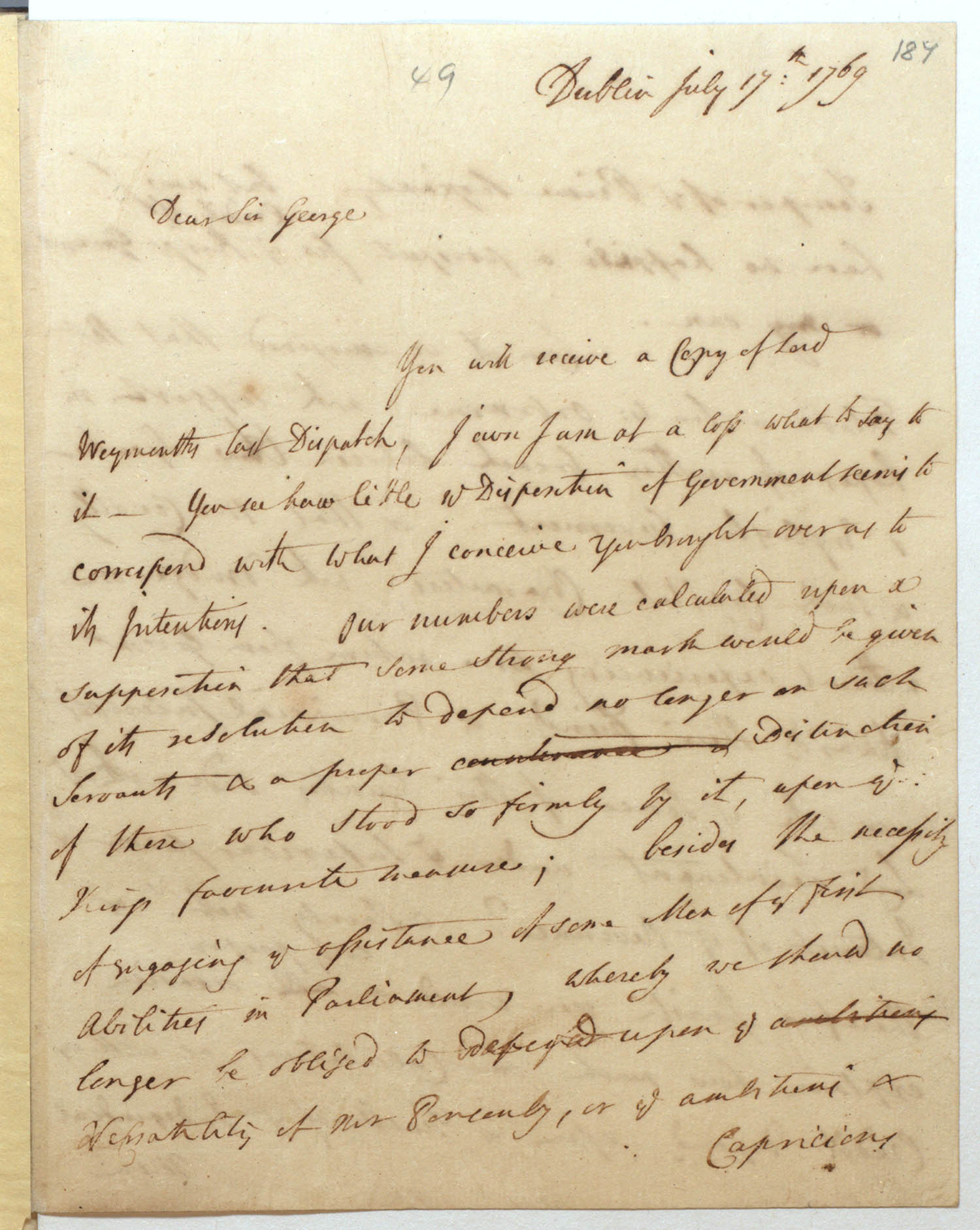
In this letter, the Lord Lieutenant, Viscount Townshend urges his Chief Secretary to press English ministers on the urgent need to reward loyal supporters in the Irish parliament and assert firmer control. Townshend warns that wavering commitment from England threatens to undermine parliamentary support and destabilize the already fragile authority of the Irish administration.
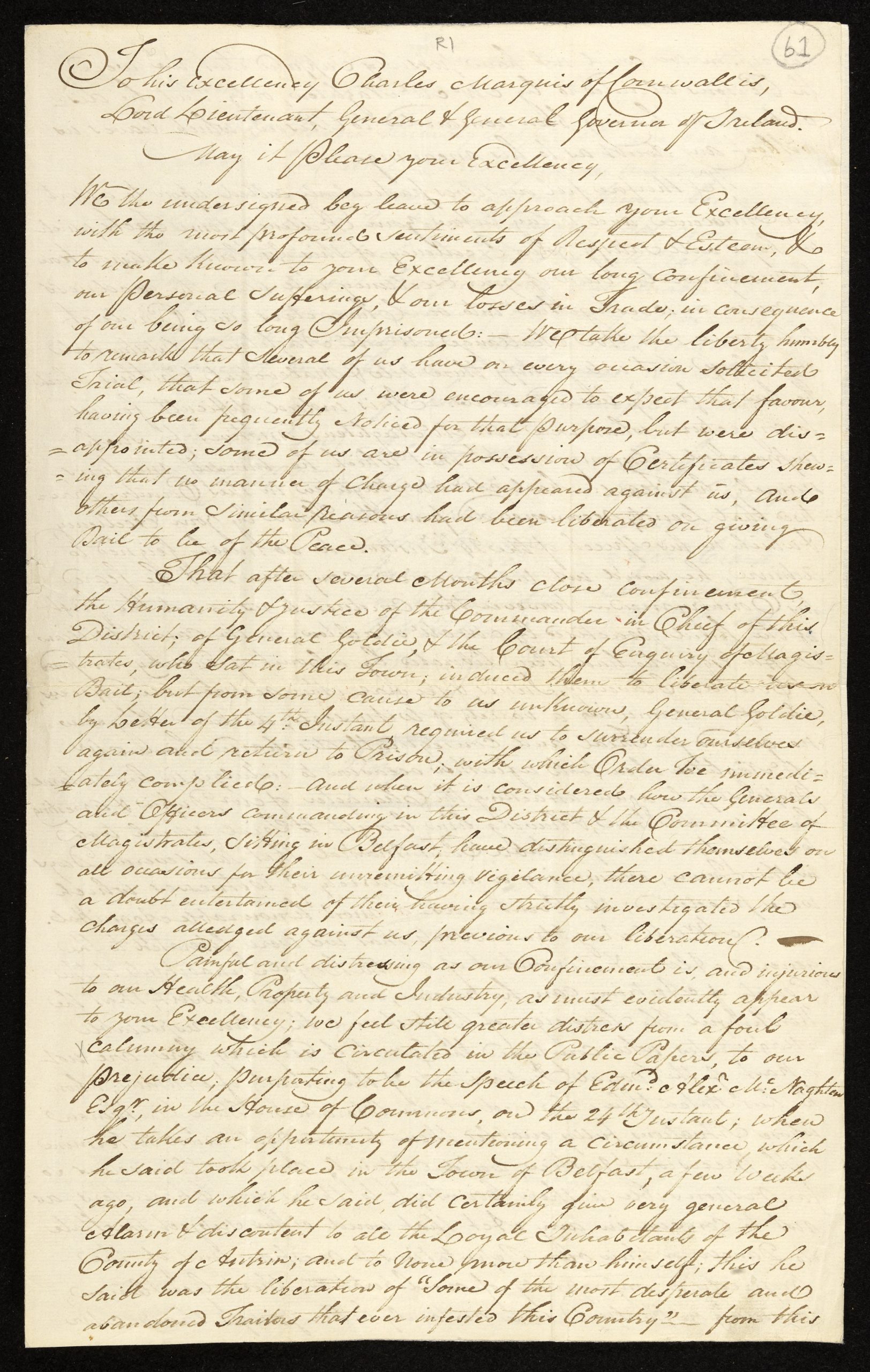
This petition is from sixteen prisoners held in Belfast after the 1798 Rebellion, including prominent United Irishmen like Robert Hunter, William Tennant, and Robert Simms. The men protest their treatment and public defamation. Outraged by a recent speech in the Irish House of Commons which has branded them ‘desperate and abandoned traitors’, they assert their innocence.
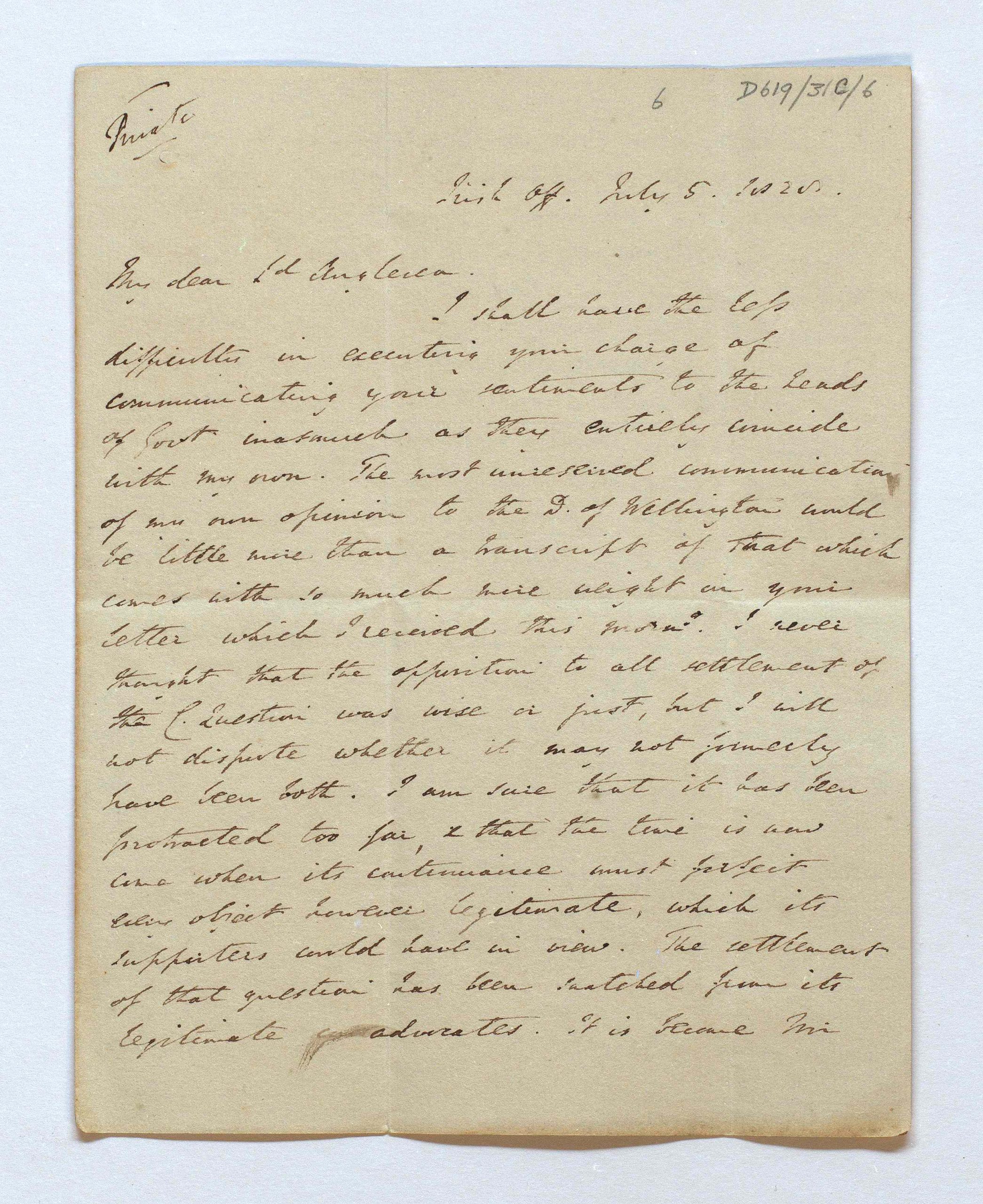
Writing to the Lord Lieutenant, the Chief Secretary, Leveson Gower, argues that the government's resistance to Catholic Emancipation has gone on too long. With the initiative increasingly seized by Daneil O’Connell, he fears the measure will lose its intended effect of reconciling the Catholic community to the state. Though politically distrustful of O’Connell, Gower acknowledges that reform is now essential to prevent deeper unrest in Ireland.
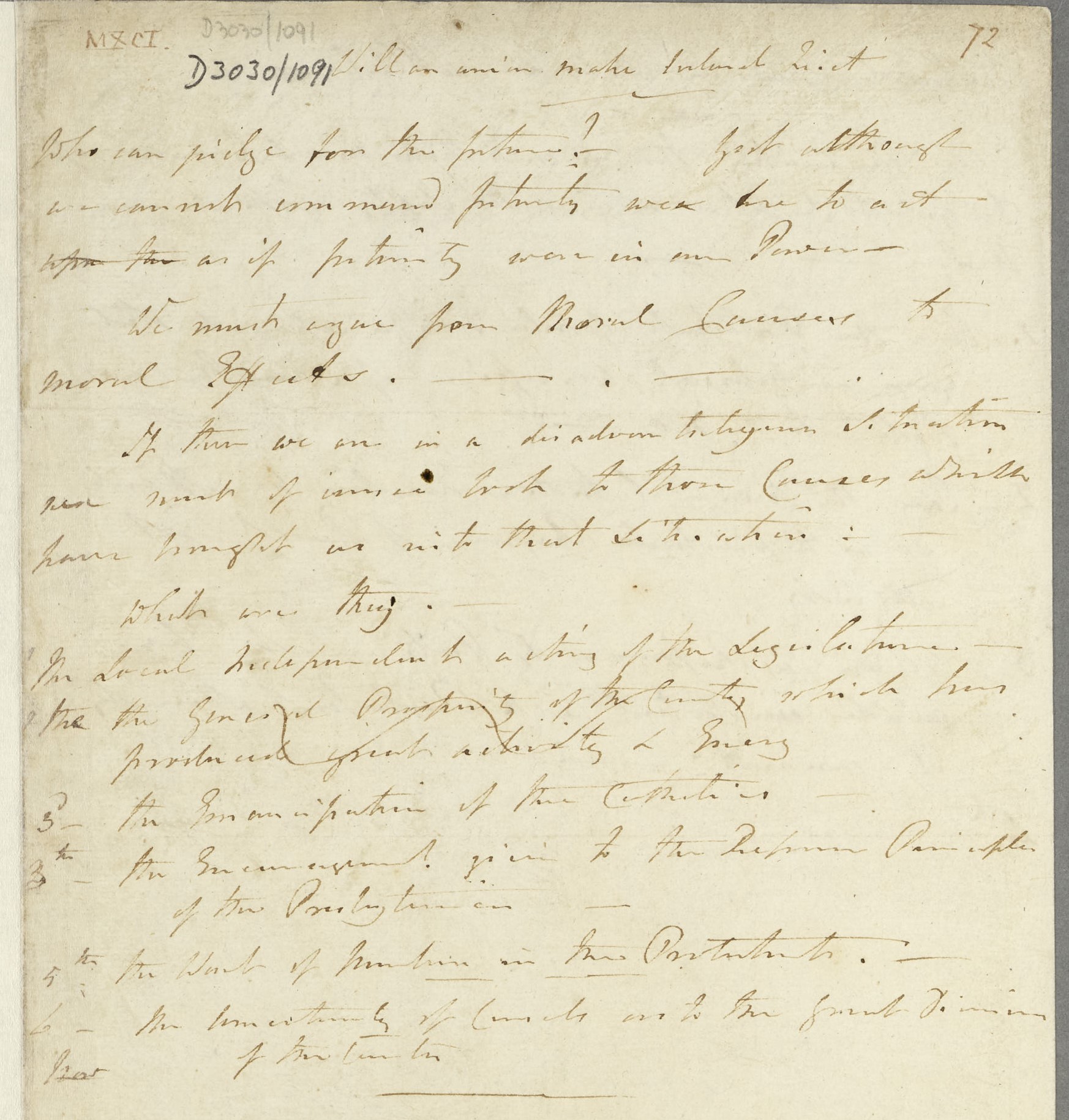
This is the draft of an address by Edward Cooke, the long serving Under-Secretary and close ally of Lord Castlereagh in passing the Union. Cooke’s pamphlets and newspaper articles were a key part of Dublin Castle’s offensive to convince Irish public opinion about the potential benefits of a legislative union.

